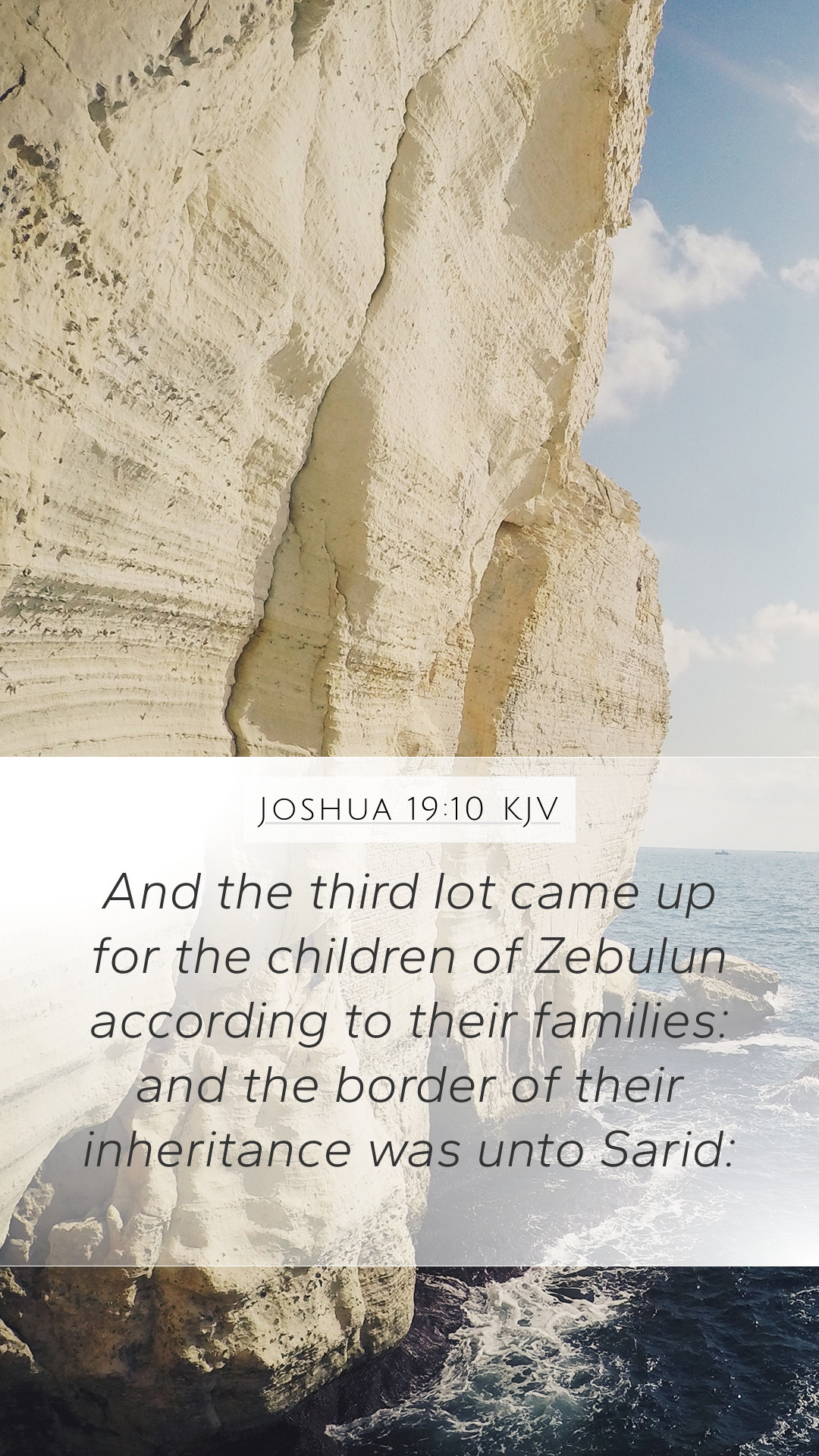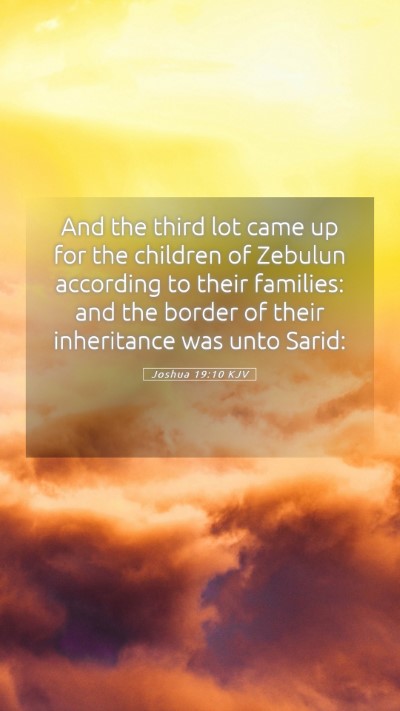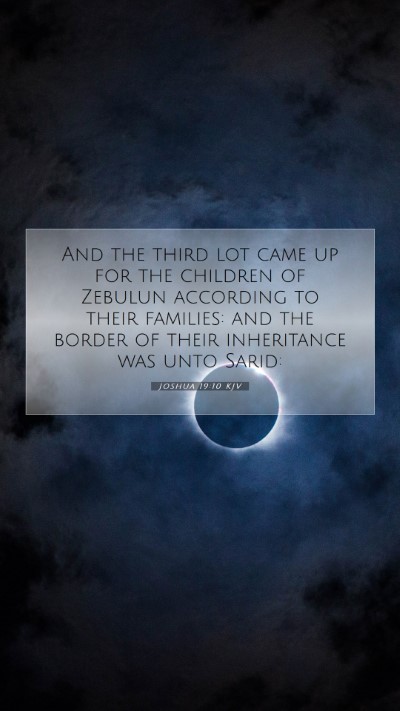Understanding Joshua 19:10
Joshua 19:10 states:
"And the third lot came up for the children of Zebulun according to their families: and the border of their inheritance was unto Sarid."
Overview and Context
This verse describes the allotment of land among the tribes of Israel, specifically focusing on the tribe of Zebulun. The context is crucial as it occurs during the division of Canaan, illustrating God's fulfillment of the promises made to the patriarchs regarding the land.
Bible Verse Explanations
The meaning of Bible verses often lies in their historical and cultural context. In this case, the description of Zebulun’s territory is part of the larger narrative detailing how each tribe received their inheritance. This process was overseen by divine guidance, emphasizing the importance of each individual tribe's role in the nation of Israel.
Insights from Commentaries
-
Matthew Henry:
Matthew Henry emphasizes that the divisions of the land signify not just territorial boundaries but also the spiritual significance of God's promises. He notes that each lot symbolizes God's provision and the importance of fulfilling His covenants with the descendants of Israel.
-
Albert Barnes:
Albert Barnes highlights the geographical implications of Zebulun’s inheritance, detailing how the boundaries set forth in this verse are important for understanding Israel's tribal structure and territorial claims. He interprets these land distributions as a reflection of divine justice, wherein God apportions the land according to His plan.
-
Adam Clarke:
Adam Clarke focuses on the significance of the name "Zebulun," which means "dwelling" or "habitation," indicating that this tribe would establish itself in the land. He comments on the prophetic implications of Zebulun’s territory, linking it to the future of the people of Israel and their development as a nation.
Application of the Verse
In today's context, applying Bible verses to daily life involves recognizing God's providence in our own circumstances. Just as Zebulun was given a specific inheritance, believers are reminded that they have a place and purpose ordained by God. This verse encourages us to seek our own "inheritance" in God's kingdom, fulfilling the roles assigned to us.
Bible Study Insights
When engaging in Bible study groups or online Bible study, this verse can serve as a launching point for discussions on:
- The significance of land and inheritance in biblical times.
- The role of the tribes of Israel in God's plan.
- How the promises God made are reflected in modern Christian life.
Historical and Cultural Context
Understanding the historical context of Bible verses is essential for deeper comprehension. The allocation of land was not merely practical but also symbolic of God's covenant relationship with His people. Zebulun’s inheritance represents the physical manifestation of God's promises that were fulfilled after years of wandering.
Related Bible Cross References
- Genesis 49:13: A prophecy concerning Zebulun’s location and future.
- Joshua 19:11: Further details of the border for Zebulun’s land.
- Judges 5:14: References to Zebulun in the context of battle and valor.
- Isaiah 9:1: A prophetic mention of the land of Zebulun.
Conclusion
Joshua 19:10, while appearing as a brief mention of land allocation, encapsulates rich themes of divine promise, territory, identity, and purpose. By engaging with commentaries and conducting thorough Biblical exegesis, we gain a deeper understanding of scripture which in turn enhances our Bible study insights and enriches our faith journey.


